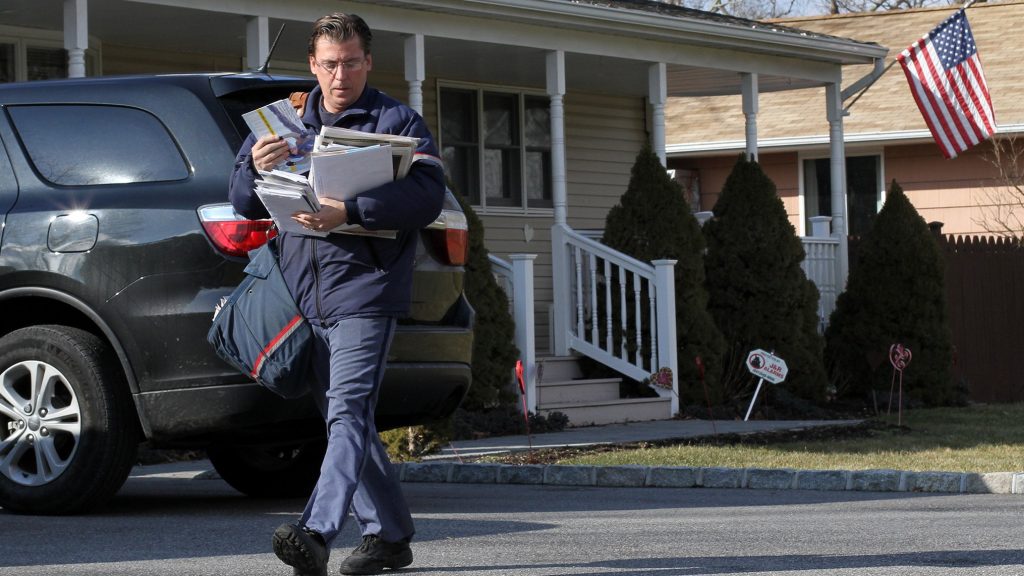A day before Postmaster General Louis DeJoy announced he was suspending operational changes to the U.S. Postal Service until after the elections, the head of the Catholic Health Association said delivery disruptions would affect millions of Americans who receive their prescriptions by mail.
Mercy Sister Mary Haddad, president and CEO, said in an Aug. 17 statement that CHA was "deeply concerned" about Postal Service changes and said "reliable and timely mail delivery" was a must for getting prescription medications to those who need them.
"Many patients with chronic diseases who rely on the mail service are particularly vulnerable during the ongoing coronavirus pandemic," she said. "An efficient and well-funded Postal Service is an essential part of efforts to protect the health and well-being of vulnerable persons during this time."
Sister Haddad praised the House of Representatives for its efforts "to address the concerns with disrupted mail service and provide adequate funding for the Postal Service to carry out its essential functions."
House Speaker Nancy Pelosi, D-California, called House members back early from their recess to consider a measure to "prohibit the Postal Service from dialing back levels of service it had in place" on Jan. 1 until the pandemic ends.
Called "Delivering for America Act," it was introduced by Rep. Carolyn Maloney, D-New York, who is chair of the House Oversight Committee.
Sister Haddad urged the Trump administration and the U.S. Senate to "join in these efforts and work together to ensure that those who rely on the Postal Service for any reason can be certain that this vital government service will continue to meet their needs."
CHA is the national leadership organization for Catholic health care, which includes more than 2,200 hospitals, nursing homes, long-term care facilities, systems, sponsors and related organizations.
In a statement released mid-afternoon Aug. 18, DeJoy said "to avoid even the appearance of any impact on election mail," he will suspend "some long-standing operational initiatives -- efforts that predate my arrival at the Postal Service -- that have been raised as areas of concern as the nation prepares to hold an election in the midst of a devastating pandemic."
"The United States Postal Service will play a critical role this year in delivering election mail for millions of voters across the country," he said. "There has been a lot of discussion recently about whether the Postal Service is ready, willing and able to meet this challenge."
To that end, he said he wanted to make "a few things clear," including that the Postal Service "is ready today to handle whatever volume of election mail it receives this fall."
DeJoy said Americans can be assured "retail hours at post offices will not change"; mail processing equipment and blue collection boxes "will remain where they are"; no mail processing facilities will be closed; and "we reassert that overtime has, and will continue to be, approved as needed."
He also said that effective Oct. 1, "we will engage standby resources in all areas of our operations, including transportation, to satisfy any unforeseen demand."
He praised the men and women of the Postal Service for their "commitment and dedication" and for "the trust they earn from the American public every day, especially as we continue to contend with the impacts of COVID-19."
DeJoy also pledged that after the elections are concluded, he will resume reforms to the agency to ensure "its long-term sustainability."

